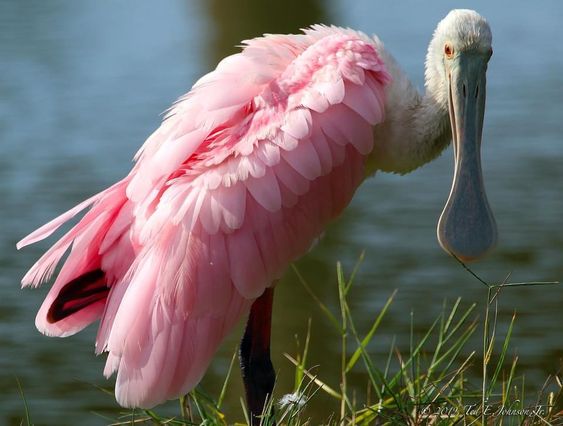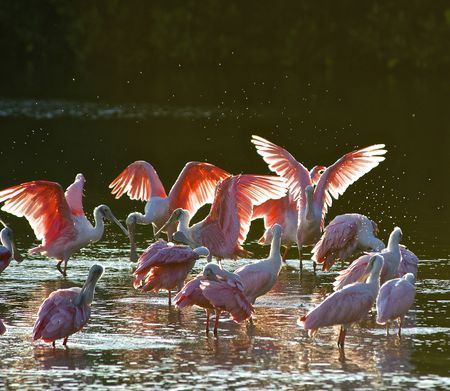As you paddle the beautiful marsh grasses that surround Cedar Key Museum State Park, you might see a few pink birds sifting through the mud. They’re not flamingoes – these bright pink birds are roseate spoonbills.

Roseate spoonbills are wading birds that stride through shallow water with their long legs. They often flock together, and they’re easy to spot with their bright pink plumage. They’re called spoonbills because of the shape of their beaks, which are flat and rounded at the tip. When looking for food, they’ll move their bill side to side while keeping it slightly open, snatching up any prey they find.

A social bird, the roseate spoonbill often feeds, roosts and flies in formation with its species. They nest singly or in pairs, usually in trees over water and sometimes on small islands.

Winter is when most roseate spoonbills breed, and to do this they join in large flocks. They build their nests in mangroves and trees along the marsh, and the female usually lays two to three eggs, though sometimes only one or as many as five.

Outside of a few areas like Florida, roseate spoonbills are rare these days. Back in the 1800s, the bright pink feathers that make spoonbills unique were prized by hunters. While the numbers of roseate spoonbills have recovered somewhat, critical habitat like the marshes at Cedar Key Museum State Park are essential for their continued survival. It’s up to all of us to make sure that these birds continue to thrive in … the Real Florida.






